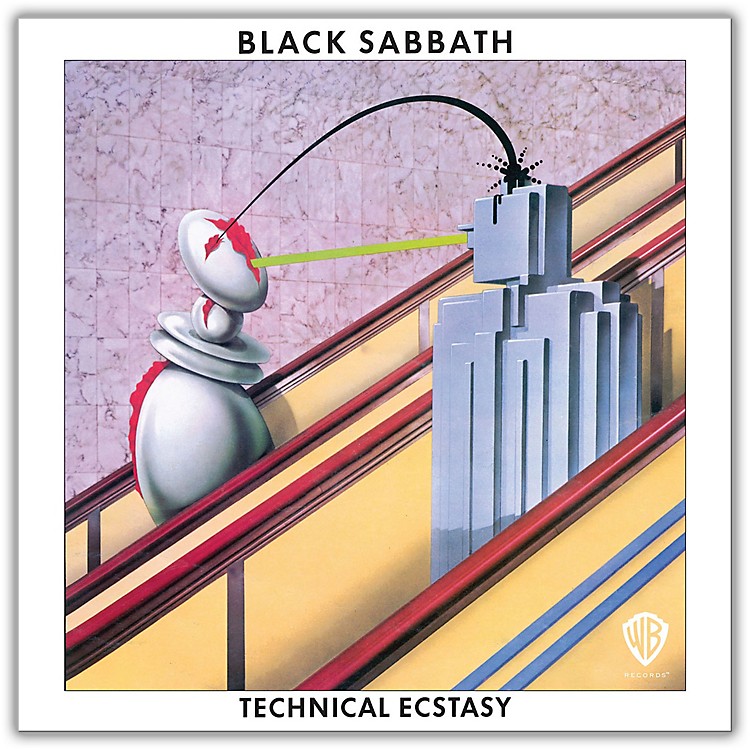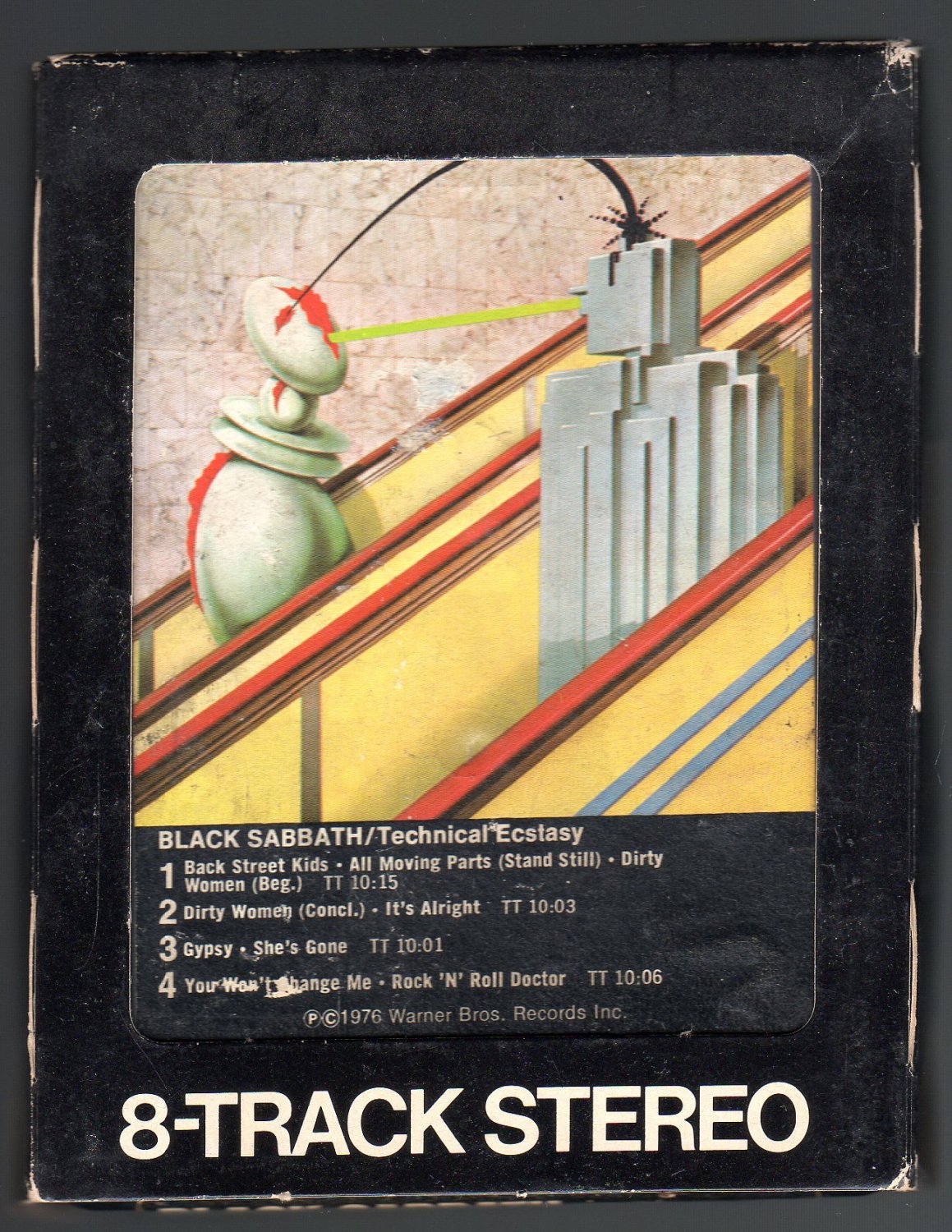
As the atypically bright Hipgnosis sleeve art and the presence of keyboard player Gerald Woodroffe indicated, this isn’t the same old doomy, primordial metal that Black Sabbath was making at the dawn of the ‘70s, but although they may have been looking around for new ideas, their energy wasn’t yet flagging. Opening with the blistering “Back Street Kids,” the production (by the band and assisted by engineer Robin Black) is muscular and shiny, not unlike the work Mike Stone and Queen were doing together around the same time. Naturally, the previously unreleased music is what makes the set Super Deluxe, but the original album itself has never sounded better.
BLACK SABBATH TECHNICAL ECSTASY PLUS
Like the other Sabbath Super Deluxe Editions, Technical Ecstasy gets the four-disc treatment here, consisting of a newly remastered version of the original 1976 album (disc one), plus three discs of unreleased material: a new Steven Wilson mix (disc two), outtakes and alternative mixes (disc three) and 1976-77 live tracks (disc four). But Technical Ecstasy, shows the band, still engaged, grappling with these problems, and it crucially has the songs to make it a kind of culmination/encapsulation of the Black Sabbath experience (to that point at least), whereas its successor, the genuinely lackluster Never Say Die! feels, aside from its title track, aimless and exhausted.
BLACK SABBATH TECHNICAL ECSTASY SERIES
The album was released at a time when the band was legendarily being blown off stage by AC/DC (a situation that would only get worse when Van Halen appeared shortly thereafter) and followed a series of albums that had pushed their original sound as far as it could go. This leads to a preponderance of songs about, on the one hand, the band’s bitterly humble origins, and whether rich rock stars can either escape from, or be true to, their roots, and on the other, rock ‘n’ roll, leading to not necessarily unfounded but beside-the-point accusations of outmoded rock dinosaur cliché-hood. Here, we find the band struggling with the seemingly enviable problem of getting everything they wanted a working-class group looking back at where they came from, becoming, along the way, as philosophical as they ever would be. Whereas Sabotage was filled with the rock-star angst that comes with ripoff contracts, sleep deprivation, endless touring and mountains of drugs, Technical Ecstasy is, in a good way, a hangover album. If that doesn’t sound like something one would want from a Black Sabbath album, think again. The band definitely wasn’t audibly any happier than before, but they sounded less chaotic and traumatized with a more fluent, fluid sound that seemed to emulate the newer stadium rock acts that had emerged over the past few years.


Clearly, a change was needed, and with Technical Ecstasy, the band sought out a smoother, more melodic musical path, with (as they say) mixed results. But something had to give and the momentum faltered around the time of 1975’s Sabotage, a deeply troubled masterpiece in which the dark energies that emanated from the grooves of their earlier work seemed to turn in on the band, making for a ragged album that was as much anguished and miserable as it was surly and Luciferian in the usual Sabbath style. Over their first four years and five albums, the Birmingham Four had sustained a trajectory that proved untenable, going from strength to strength until reaching the peak of 1973’s Sabbath Bloody Sabbath. But although it’s undeniable that the album marks the point at which the originators of heavy metal began to change direction, don’t believe the anti-hype - Technical Ecstasy contains some of the band’s most accomplished work. The reputation of Black Sabbath’s seventh album precedes it.


 0 kommentar(er)
0 kommentar(er)
